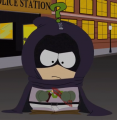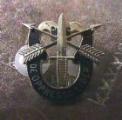Start with Antony Beevor's 'Inside the British Army' - Part 2: To Be An Officer. 1990
...following on from my previous post you need higher quality junior commanders to be able to 'operate in small groups with little or no outside help'.(Keeping the Peace 1963)
What has changed? Nothing. Churning officers out by the hundred to meet the requirements does nothing to improve individual quality.
Now move onto Richard Holmes' 'Acts of War' - pages 316-31
Where do you draw the line on where 'immediate instinctive' (rather than unthinking) obedience to the word of command begins and ends?
Holmes cites 'Crisis in Command' where testimony to the US Senate indicated 254 Vietnam 'combat refusals' in 1971 alone.
So I suggest this is being phrased incorrectly.
The problem with command decisions and subsequent orders is when they fail and waste soldiers lives. The solution to this is not for subordinates to second guess the orders they receive but rather for the quality of officers to be improved. This not happening.
The troopie/the private soldier/the grunt still needs to 'do what he is told' without question. It is the NCOs and the officers who need to get their act together.
















Bookmarks